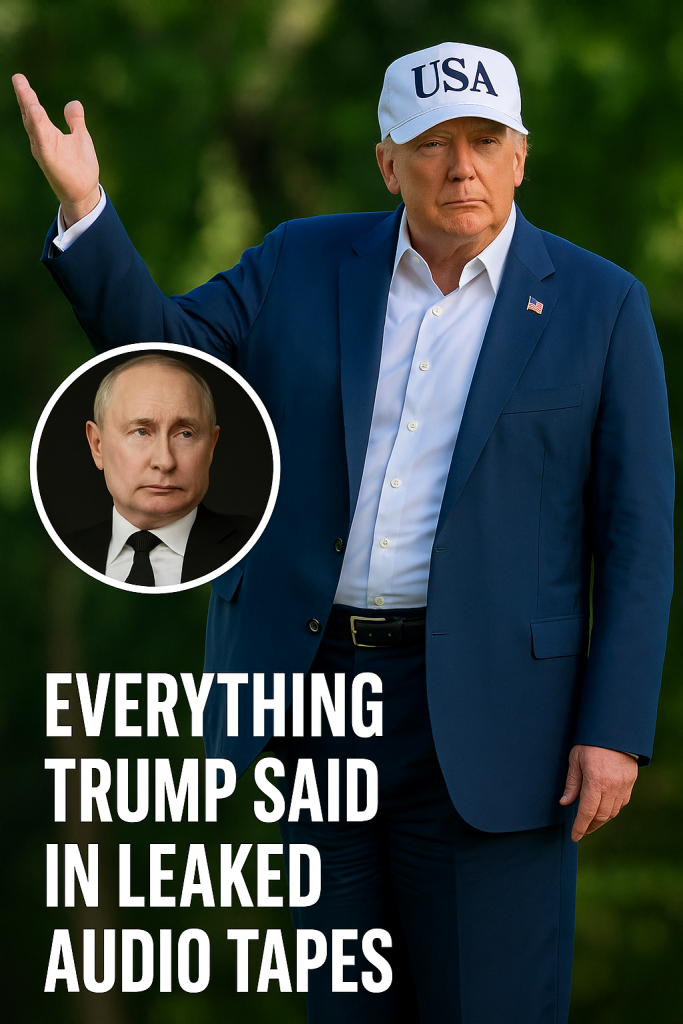In a breaking development that has stunned political circles worldwide, leaked audio tapes revealing controversial statements by former President Donald Trump have sparked a fierce response from Russian officials. The recordings, which surfaced recently, feature Trump making bold and provocative claims concerning Russia and the situation in Moscow, drawing sharp condemnation and escalating tensions just months ahead of the 2024 US presidential election.
The incendiary content within these audio leaks has rapidly spread across social media platforms, triggering intense debate and international alarm. The tapes purportedly capture Trump using strong language and making direct threats aimed at Russia’s capital, Moscow, a move that had previously been unreported in mainstream news.
According to the leaked segments, Trump allegedly criticized Russia’s actions on the global stage, hinting at aggressive U.S. responses should diplomatic relations continue to deteriorate. The stark warnings included references to Moscow as a possible target in geopolitical maneuvers, provoking outrage from Russian government representatives who have described the remarks as “unacceptable” and “a blatant provocation.”
In Moscow, official channels responded swiftly and sternly, condemning the comments as reckless and inflammatory at a time when diplomatic dialogue is crucial. The Russian Ministry of Foreign Affairs issued a statement underscoring the risks of such rhetoric and emphasized that attempts to threaten Moscow would be met with “appropriate and resolute measures.”
Experts suggest these leaks may impact the diplomatic landscape significantly, complicating U.S.-Russia relations during a delicate period marked by conflict in Eastern Europe and ongoing strategic power plays. The timing of the leak is particularly noteworthy, as it comes amid increasing speculation about Trump’s political ambitions for the 2024 election cycle, where foreign policy remains a central voter concern.
Political analysts are debating whether the leaked audio might be part of a strategic move intended to influence public opinion or destabilize diplomatic rapport. Regardless, the fallout is already evident, with voices from both parties in the U.S. calling for a careful reassessment of communication strategies and the prioritization of constructive engagement over inflammatory rhetoric.
Meanwhile, media outlets and social platforms continue to comb through the recordings, seeking to verify the authenticity and full context of Trump’s statements. The former president’s representatives have yet to issue a comprehensive response, adding an element of uncertainty to an evolving story that shows no signs of abating.
What this episode highlights is the far-reaching impact of unguarded words—especially when spoken by a figure as influential as a former U.S. president. As both nations navigate the turbulent waters stirred by these revelations, global attention remains fixed on how this diplomatic spat will unfold and influence the broader international order during a critical election year.



